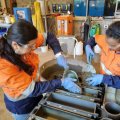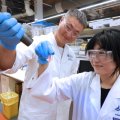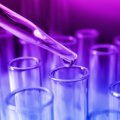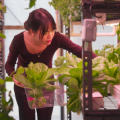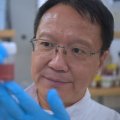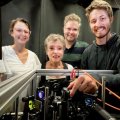Australian scientists are playing a vital role in a worldwide search for cancer therapies, described in the top scientific journal Nature overnight (15th April).
The scientists are part of the International Cancer Genome Consortium (ICGC), a group of researchers from 22 countries who are conducting large-scale studies on the genomes of different tumour types.
A genome is an individual’s set of genetic data. There is a copy of the genome in each cell in the body, including in tumour cells. Sequencing a genome involves creating a readout of the entire genetic code.
ICGC members will together sequence the genetic codes of 25,000 tumours from 50 different types of cancer over five years, with Australian scientists responsible for studying pancreatic and ovarian tumours.
“All human cells accumulate genetic mutations,” Professor Sean Grimmond from the Institute for Molecular Bioscience at UQ said.
“Some of these are what we call ‘driver’ mutations, meaning they give cells characteristics that promote their transformation into a tumour and subsequent invasion of other tissues.”
“The ICGC project aims to create an atlas of these genetic changes, as mapping driver mutations is the first step in identifying targets for treatment and in the development of diagnostic tests.
“The advantage of working in a consortium is that we can standardise data collection across countries, making it easier to compare tumours, and we can also avoid any duplication of effort.”
Professor Grimmond is head of the Australian team, which also includes Professor Andrew Biankin from the Garvan Institute of Medical Research and Professor David Bowtell from the Peter MacCallum Cancer Centre.
The Australian effort is already producing results, with Professor Grimmond and colleagues uploading the genetic data for two pancreatic tumours to the ICGC web portal. These data will be available for researchers all over the world to access and use.
“We are now interpreting this data ourselves” Professor Grimmond said.
“We have identified changes in the genetic code from normal tissues to tumours, but we don’t yet know if these changes are responsible for disease.
“Our next step is running tests in the lab to confirm if these genetic changes have a biological effect. We will do this for every tumour we sequence over the five-year project.”
The Australian project is being supported by funding from the National Health and Medical Research Council, the Queensland Government, the Cancer Council NSW and UQ, and will use technology from Applied Biosystems (a division of Life Technologies Corporation) and (SGI) Silicon Graphics.
Media: Professor Sean Grimmond (07 3346 2057) or Bronwyn Adams at IMB Communications (07 3346 2134, 0418 575 247).
.jpg)

